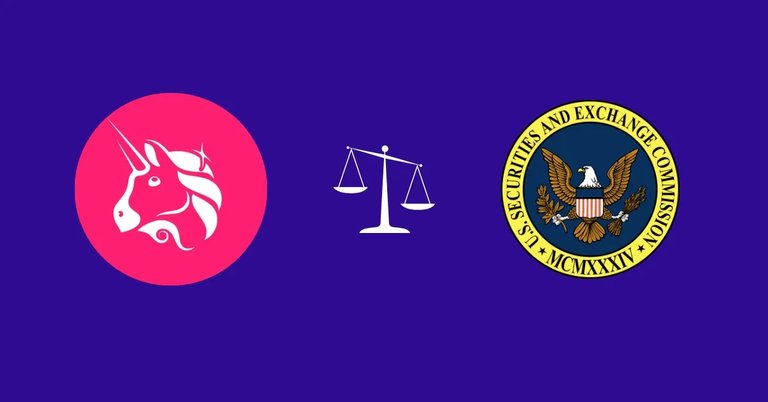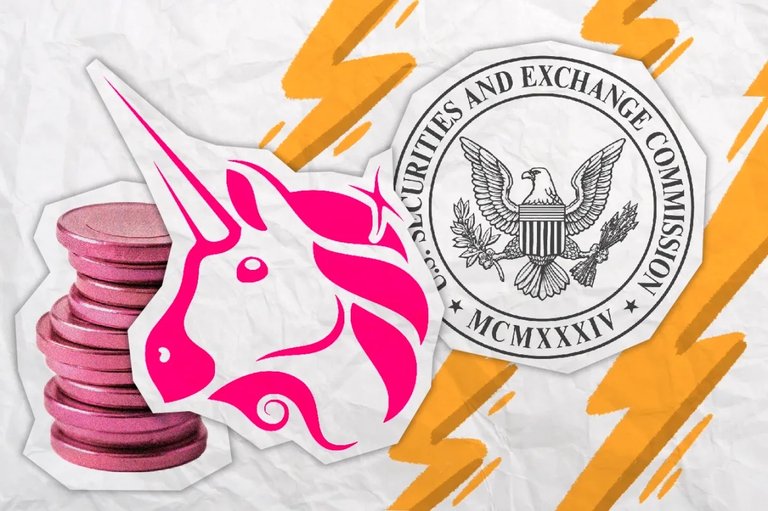
Uniswap Labs Faces Regulatory Action for Leveraged Crypto Trading:
On a recent occasion, the U.S. Commodity Futures Trading Commission (CFTC) issued a formal order against Uniswap Labs, a prominent decentralized exchange (DEX), for illegally offering leveraged and margin crypto transactions, particularly involving Bitcoin (BTC) and Ethereum (ETH), to small retail investors in the U.S. The CFTC, responsible for regulating derivatives and commodities markets, fined Uniswap Labs $175,000. Additionally, the DEX has been ordered to cease any activities violating the Commodity Exchange Act (CEA), a federal law overseeing commodity and derivatives trading such as futures, options, and swaps.
This penalty represents a pivotal moment for the decentralized finance (DeFi) industry, as regulators intensify efforts to exert control over this rapidly evolving market.
CFTC’s Focus on Uniswap Labs and Leveraged Commodity Trading:
The CFTC’s enforcement action against Uniswap Labs centers on the platform’s illegal offering of leveraged trading on commodities—a sector under strict regulatory oversight. In this case, Uniswap allowed users to trade BTC and ETH with leverage close to 2:1, a practice that amplifies potential returns but also heightens the risk of losses exceeding the initial investment. Both ETH and BTC are classified as commodities under CFTC jurisdiction.
A major point of contention in the violation was Uniswap's offering of these leveraged products to small, unqualified retail investors. According to Section 4(a) of the Commodity Exchange Act, companies are prohibited from offering leveraged and margin trading on commodities unless they are registered as a Designated Contract Market (DCM).
Ian McGinley, Director of Enforcement at the CFTC, emphasized that the agency will continue to rigorously enforce the CEA, especially as the DeFi sector grows and evolves. This case highlights the tension between traditional financial regulations and the increasingly automated, decentralized nature of DeFi platforms.

Uniswap and the SEC: The Challenge of Regulating Decentralized Platforms:
The CFTC action is not the only regulatory challenge facing Uniswap Labs. In April, the U.S. Securities and Exchange Commission (SEC) issued a Wells Notice to the exchange, indicating the likelihood of legal action for alleged securities law violations. In response, Uniswap submitted a 40-page defense, arguing that the SEC lacks jurisdiction over assets like BTC, ETH, and stablecoins—the primary tokens traded on the platform. Uniswap also asserted that it is not a traditional securities exchange, 66]]rather a software platform that allows users to interact via smart contracts.
This clash underscores the complexities regulators face in applying traditional finance laws to decentralized platforms, which operate automatically without intermediaries. Previously, Uniswap had already restricted certain token operations that eventually led to the CFTC fine. While the order didn’t directly name the issuers of these tokens, it appears that leveraged tokens tied to BTC and ETH prices were at the heart of the issue.
DeFi Under the Watchful Eyes of the CFTC and SEC:
The CFTC’s action against Uniswap Labs marks a crucial milestone in the ongoing regulatory oversight of decentralized finance. It signals that authorities are beginning to strictly apply commodity and derivatives regulations to the DeFi space. As DeFi continues to grow rapidly, we can expect more instances where both the SEC and CFTC intervene, particularly on platforms offering complex financial products such as leveraged trading.
The SEC has repeatedly emphasized that most digital assets should be classified as securities under U.S. law, potentially causing overlap between SEC and CFTC oversight. This overlap could lead to conflicts in regulatory jurisdiction, particularly when it comes to classifying which assets fall under securities versus commodities law.
Broader Implications for Digital Asset Regulation:
The CFTC’s decision to penalize Uniswap Labs could be an early indicator of the regulatory trajectory for digital assets. DeFi, which has thrived partly due to the lack of stringent oversight, now faces growing pressure to comply with existing laws or restructure operations accordingly. The enforcement landscape is evolving, with the DeFi sector increasingly under scrutiny as regulators aim to protect investors and ensure market integrity.

Uniswap Labs manages over $4.3 billion in Total Value Locked (TVL) and operates across multiple blockchains, making it one of the most influential protocols in the DeFi ecosystem. The regulatory pressure on such a major player could have significant ripple effects across the entire DeFi space.
Conclusion: A Regulatory Turning Point for DeFi
The CFTC’s action against Uniswap Labs signals a turning point in how regulators approach decentralized platforms. While DeFi has thus far enjoyed relative freedom, this case shows that platforms offering complex financial instruments, such as leveraged trading, must adhere to the same regulations as traditional financial institutions. Moving forward, platforms like Uniswap may have to adjust their practices or face further regulatory consequences. This enforcement also suggests that digital asset regulation will likely intensify in the coming years, with both the CFTC and SEC taking a more active role in overseeing the sector.